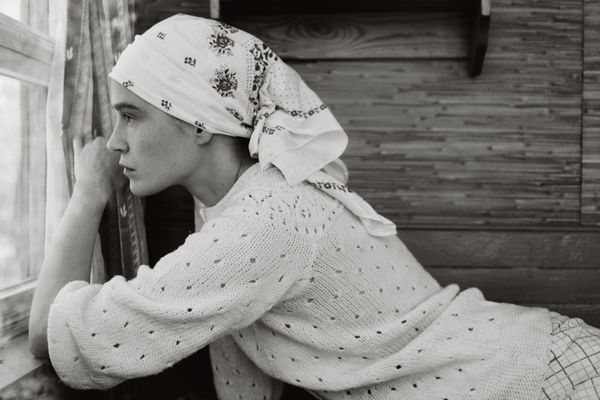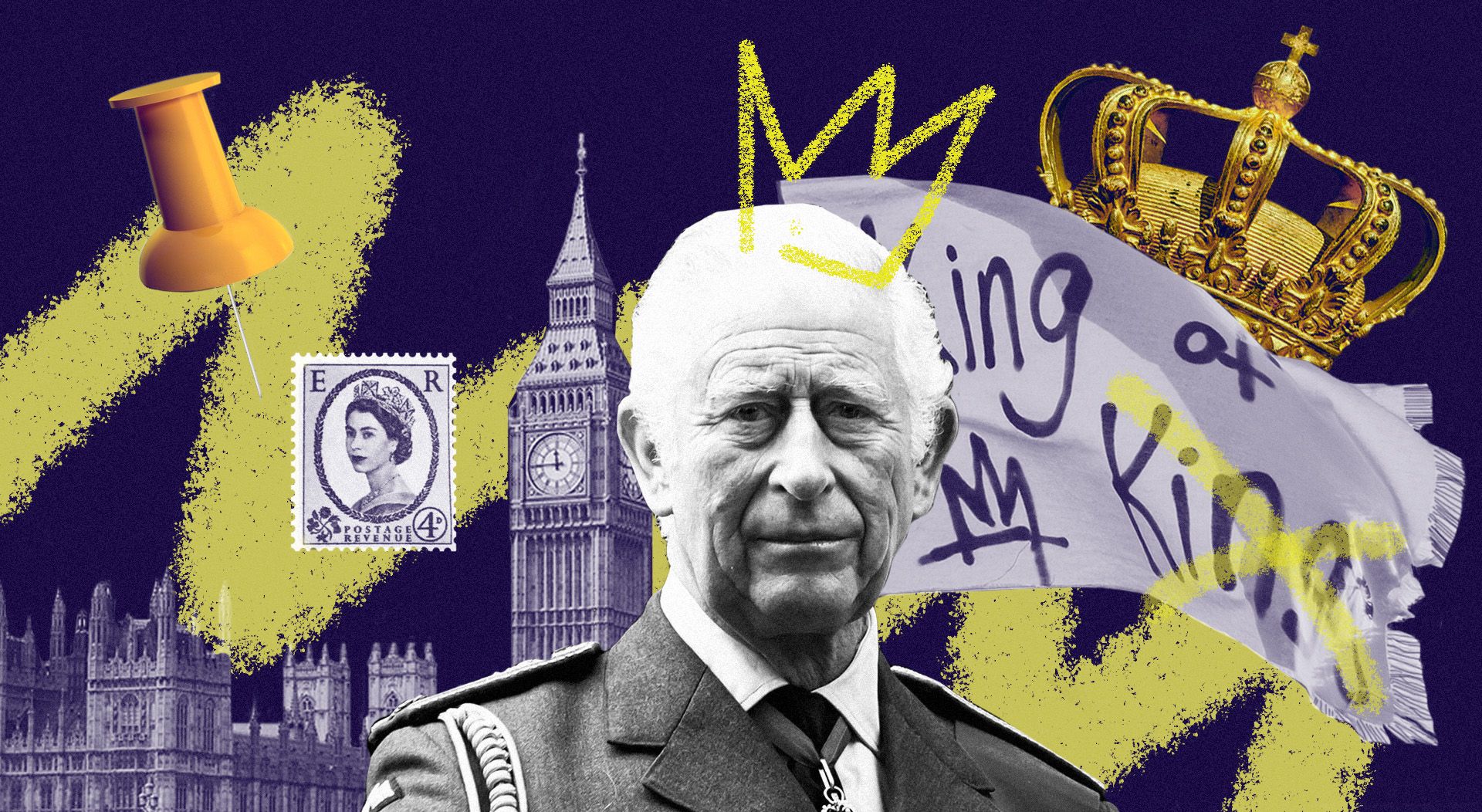The coronation of Britain’s monarch, Charles III, a few weeks ago attracted huge attention around the world. Many celebrated the preservation of a historic tradition in the 21st century, while others took a more critical view. This renewed spotlight on the British royal family has once again thrust the issue of monarchy into the heart of the public debate: what are the arguments for and against royalty in 2023?
A few weeks ago, on May 6, the British monarch Charles III was crowned. Although Charles had already become king upon the death of his mother, Queen Elizabeth II, the ceremony was a symbolic transfer of power over the United Kingdom and fourteen sovereign states, as well as the Church of England. This having been the first time in seventy years—since Elizabeth II came to power—that such a lavish ceremony had been held, the coronation provoked strong emotions at both ends of the spectrum of views on the monarchy.
But what could be the problem?
Regarding the monarchy, there are two major conflicting opinions around which its adherents circle the wagons: some see the monarchy as something that was, is, and will be, and where there is no room for doubt or change—others see it as an outdated, medieval institution that no longer has any raison d’être. The republican position is that the monarchy puts too much power in the hands of too few and therefore does not serve the democratic system that the British people want and “represents exclusion, elitism, and hereditary power and privilage at the expense of everyone else”. The pro-republicans argue that there are spurious arguments in favor of the monarchy, which provides neither stability nor economic benefits and is in fact a corrupt institution—the ruling family uses public money to finance its luxurious lifestyle rather than serving the public good. They prefer a parliamentary republic, with no hereditary positions, no entanglements, no actors with a majority of power, but the people electing their own representatives. The new cost-of-living crisis, which has also hit the British people hard, adds to the frustration, but a representative poll still shows that 58% of the people prefer a monarchy to an elected head of state.

Although there are currently forty-three states headed by a king or queen—no fewer than nine of which are European—it is still the British royal family that is in the limelight. The reasons for this are manifold: on the one hand, Britain’s ruling family is the head not only of its own country but also of fourteen other sovereign states, due to its convoluted colonial past. This is why the death of Queen Elizabeth II last year caused some turmoil in the societies of the former British Empire, the Commonwealth, where the skepticism surrounding the monarchy and pro-republican attitudes have been steadily rising. The anti-monarchy sentiment is particularly strong in Canada, where immigrants make up around a quarter of the French-speaking population of Quebec, the largest province of the North American country, and it is therefore only natural that the country’s diverse population should now feel that adherence to the crown is not an integral part of their identity. The popularity of the monarchy is slowly eroding. Queen Elizabeth II was loved and respected as a queen by many Canadians, and Canada was a favorite destination for the former monarch, who traveled there twenty-two times during her reign. However, the end of her seventy-year reign brought a significant turning point. According to a poll by the Angus Reid Institute, 52% of Canadians do not want their country to remain a constitutional monarchy, and 88% see the need to review and possibly cut ties with the monarchy. The death of Elizabeth II has played an undeniable role in the plummet in popularity, with her son and successor Charles III now nowhere near as popular as his late mother. So much so that, according to one survey, some 60% of the population do not even recognize the newly crowned monarch as king, and two-thirds are completely opposed to recognizing his wife, Camilla, as queen. For many, the institution of the monarchy is associated with a colonial past and the suffering of Canada’s indigenous peoples, with which they wish to break on moral grounds.

Monarchy: a hotbed of democracy?
The social perception of the institution of monarchy is more of an ideological issue on which there is unlikely to be a consensus. However, it is also worth considering that many explicitly democratic states have a king, such as Denmark, Sweden, and Norway, but also the Netherlands, Luxembourg, and Spain. The Scandinavian trio, where royal families have held the role of head of state for centuries, are also among the most democratic countries globally. It is important to stress, however, that the role of the royal families in northern Europe is now explicitly ceremonial and symbolic, with little real influence. Certain Scandinavian monarchs do not seem to cling to the title too tenaciously: for example, Margrethe II of Denmark took the blatant step of stripping her four grandchildren of their royal status to allow them to lead a “more normal life”. Their titles were abolished in January this year and they are now entitled to the title of count. Prince Joachim, son of Margrethe II, was disappointed at the decision affecting his children. “We are all very sad about it. It’s never fun to see your children being mistreated in this way. They find themselves in a situation they don’t understand,” said Queen Margaret’s 53-year-old son. But this was not enough for the Queen to change her decision, which was intended to reduce the role of the monarchy, while also allowing her grandchildren to “shape their own lives to a much greater extent”.
As for the King of Sweden, he has taken a similar step to the Queen of Denmark: the Swedish monarch Carl Gustav has stripped five of his seven grandchildren of their royal status in 2019. As a result of his decision, the descendants will no longer be entitled to tax exemptions and will no longer have to fulfill the obligations that come with the status. The Swedes have taken another step to modernize the monarchy: in 1980, they were the first to go beyond the spirit of the times by changing the rules of succession to the throne so that it is no longer gender-bound, with the monarch’s first-born child being the heir, regardless of gender.

How can a monarch be popular?
Support for monarchies fluctuates, but questions remain about the role of monarchies, which in some cases may even appear to be a path to democratization. In a book of studies on comparative public law, titled The Role of Monarchy in Modern Democracy: European Monarchies Compared, the authors take an in-depth look at this. The volume argues that political neutrality is a major, one might say primary, factor in the functioning and popularity of a monarchy. Neutrality is therefore essential for the popularity of monarchs, who can risk their popularity and status by breaking political neutrality. This is illustrated by several examples, such as the refusal of Henri, Grand Duke of Luxembourg, to sign a law authorizing euthanasia in 2008, which led to his role being curtailed by a constitutional amendment that removed his power to approve laws before they came into effect.
The volume also suggests that a basic principle of maintaining popularity is to keep members of the royal family away from scandal, especially corruption. The case of King Juan Carlos I of Spain, who was forced to voluntarily abdicate the throne (under pretexts) in 2014 after coming under fire for some very serious allegations, is a prime example. These allegations suggest that the former king may have accepted millions of euros in bribes from the Saudi Arabian monarch during a railway project. The scandal caused an uproar in the monarchy, the king resigned and has now voluntarily left Spain.
Thirdly, the book draws attention to the importance of the size of royal families. To put it simply, the smaller the better is a good principle, but it is not always the rule. While the argument for fewer family members is that they mean less exposure to criticism and possible missteps, a larger nation needs a larger royal family to be able to perform its duties and responsibilities satisfactorily.
Fourth, the authors examine the situation of the children and descendants of royal families, which has already been briefly touched upon. While they enjoy a number of undeniable and inherent advantages as members of the royal family from the moment of their birth, the disadvantages of their title should not be overlooked—such as a restricted private life, a predetermined and strict set of duties, constant scrutiny, and a complete lack of career opportunities. Navigating this life is not always easy, nor is it a task that everyone can accomplish, which can lead to separation. No one needs to be introduced to the controversial case of Prince Harry and Meghan Markle. The book’s authors argue that knowing, understanding, and alleviating the plight of their successors would serve to make monarchies more popular.
The fifth important pillar highlighted is the accountability and responsibility of monarchs. Members of the royal family must take responsibility for their actions and omissions, even if they are not always required to do so. Although their title is hereditary, it is not necessarily permanent. The need for monarchies and royal families must ultimately be decided by the people.
Graphics: Réka Pisla

From the runways to the streets #1 | A year in fashion

“I want to explain to the world what Ukraine is” | Interview with Nadiia Shapoval, chief curator of i am u are










